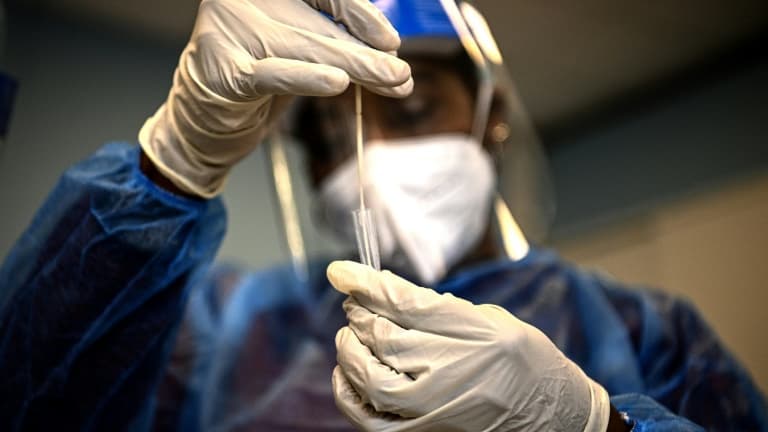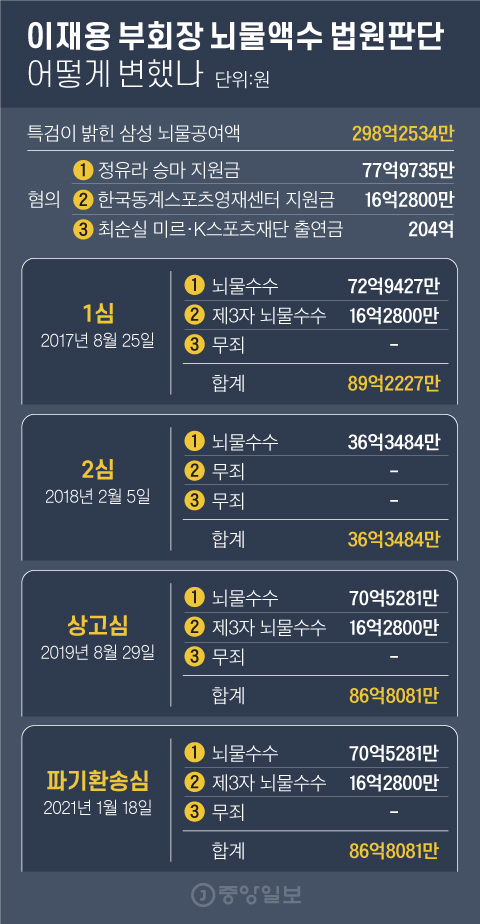Unlike the British variant, which can be detected using a specific PCR technique, the task is more difficult for the South African variant.
501Y.V2. Behind this series of numbers and letters, there is a potential health threat for several countries, including France. Spotted for the first time in South Africa last October, this variant of Covid-19 tends to spread over the territory, and has already been identified in different regions of France.
Unlike the British variant, which can be detected using a particular PCR technique, that of the company Thermo Fisher, the task is much more difficult for this South African modification, explains to BFMTV.com Lionel Barrand, of the Union of young biologists.
“No biological signal”
At present, it is impossible to guess if an individual is contaminated by this mutation without carrying out more extensive tests, including the sequencing of the samples. “You can spot it by sequencing. PCR works to spot the virus since it detects proteins, and sequencing the variant”, adds the latter.
So while waiting for potential scientific advances, biologists are groping their way in order to identify the mutation.
“There are two criteria to orient towards the South African variant: first the epidemiological criterion, have you been in South Africa or in Great Britain (for the British variant, note), if so, we sequence “, continues Lionel Barrand.
Then comes the biological criterion, only relevant for the British variant, explains the biologist. According to him, the Thermo Fisher probe used was deposited “by chance” on the gene for the British mutation, which made it easy to spot it via PCR tests. However, for the South African variant, this biological signal is not detected for the moment, which prevents the PCR tests from being effective.
Sequencing is therefore useful with both variants, but where a PCR test can indicate the presence of the British variant, which will then be confirmed by sequencing, PCR is not relevant for the South African variant. The decision to sequence the sample must therefore be made on the basis of other criteria.
“We do not have this biological signal for the South African variant, it is above all necessary to use epidemiological criteria, there are no other techniques which allow us to reach it,” he confirms.
Increase sampling
To go further, Lionel Barrand believes that it is necessary “to remain on the epidemiological criteria and to sequence the positive tests” even if for the moment, it is “impossible with our means to sequence all the positive tests.”
“You have to do as much screening as possible, flash studies of the different sequencing, operate by sampling when you have a particular cluster, where the virus circulates quickly …”, he insists.
Himself a member of the Syndicate of Young Biologists, he assures us that private laboratories must “be ready, be vigilant in the questions put to patients. The authorities will perhaps ask for all the tests to sequence them, they must are ready to be sent. “
While waiting for these advances, the biologist assures that it is vital to maintain the barrier gestures.
“We are continuing the strategy of testing / alerting / isolating. Barrier measures are also working. The variant is not going to jump out of the mask.”
Massive screenings
In the meantime, several municipalities where the South African variant has been discovered have decided to speed up the process. Since last Friday and the discovery of several cases in Val-de-Marne, a screening operation has been organized in five schools.
In addition, dedicated screening centers opened their doors this Saturday in Colombes, in Hauts-de-Seine, in Maisons-Alfort and Bonneuil-sur-Marne, in Val-de-Marne, and in Fleury-Mérogis. , in Essonne, after the discovery of other cases.
There, those who wish will be able to benefit from a classic PCR test, and a second test dedicated specifically to this variant.
“The first, which is sent to the Broussais laboratory to find out if the person has a negative or positive test. If it is positive, the second test is sent to the Pitié-Salpêtrière laboratory where we will check the genome and see if it is a virus which comes from the South African strain “, details Jolan Bokobza, medical student, temporary worker with the Public Assistance – Hospitals of Paris, with our branch.
The objective here is to save time and break the chains of contamination. This weekend, nearly 1,000 people were tested and the tests will continue on Monday and Tuesday.
–


